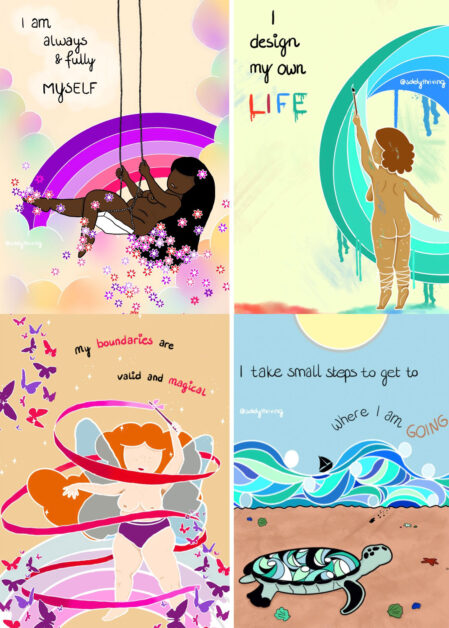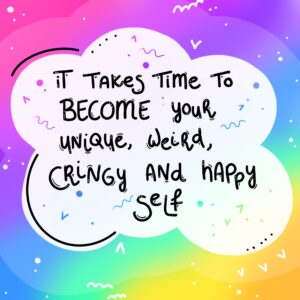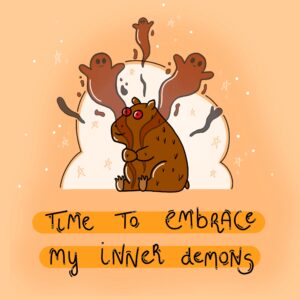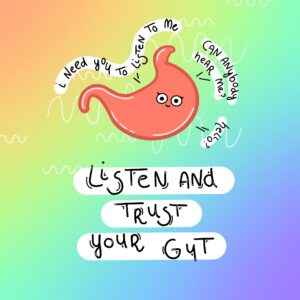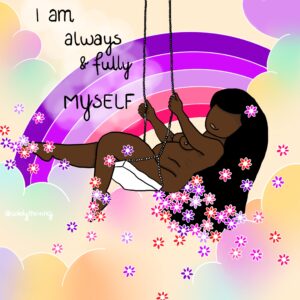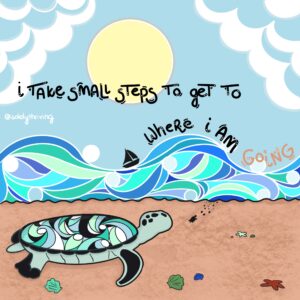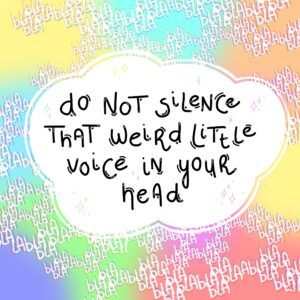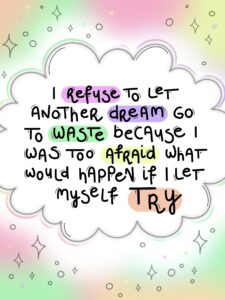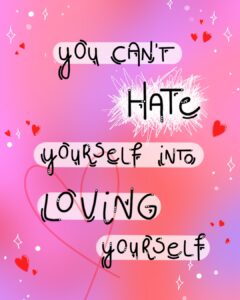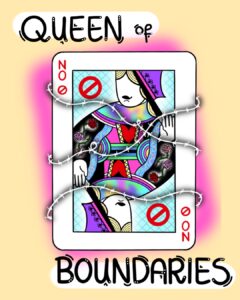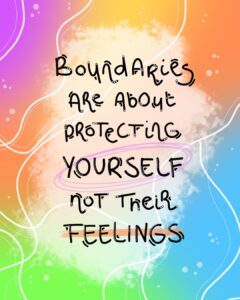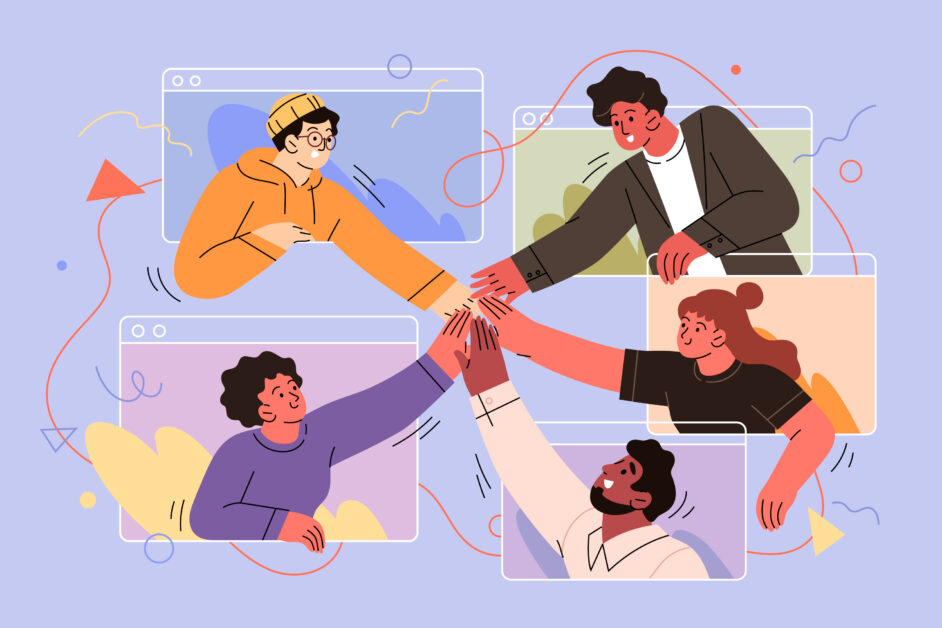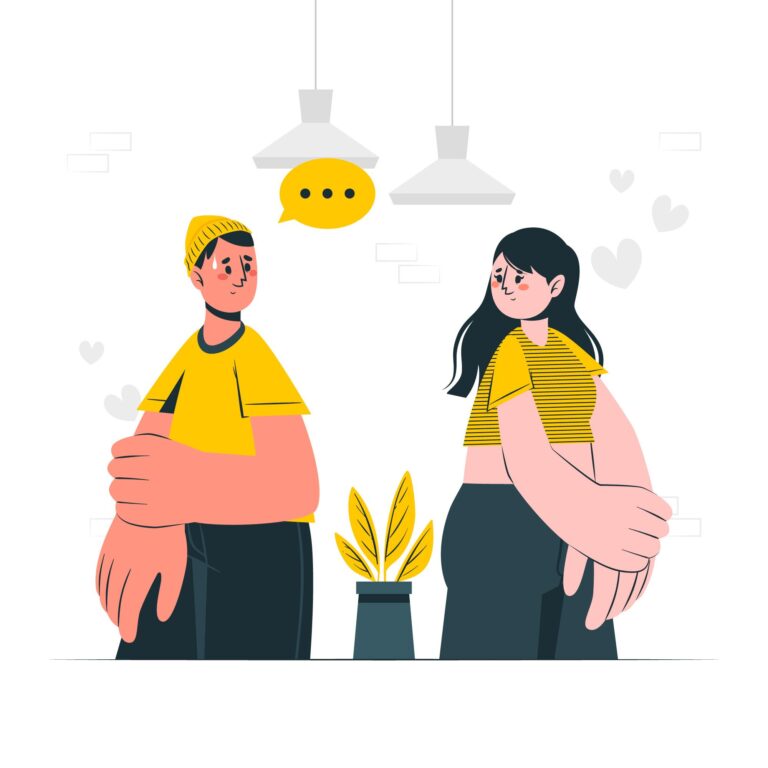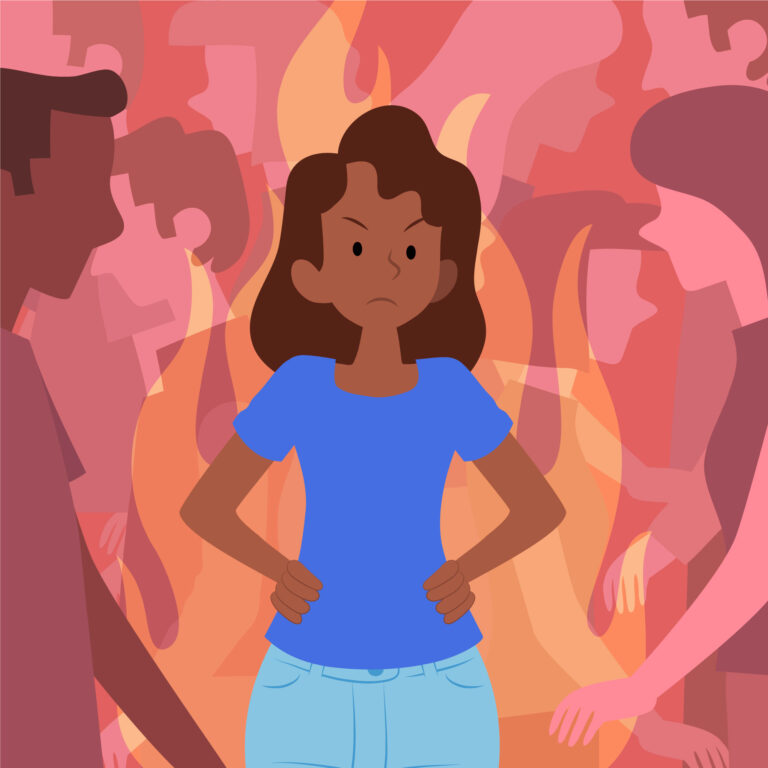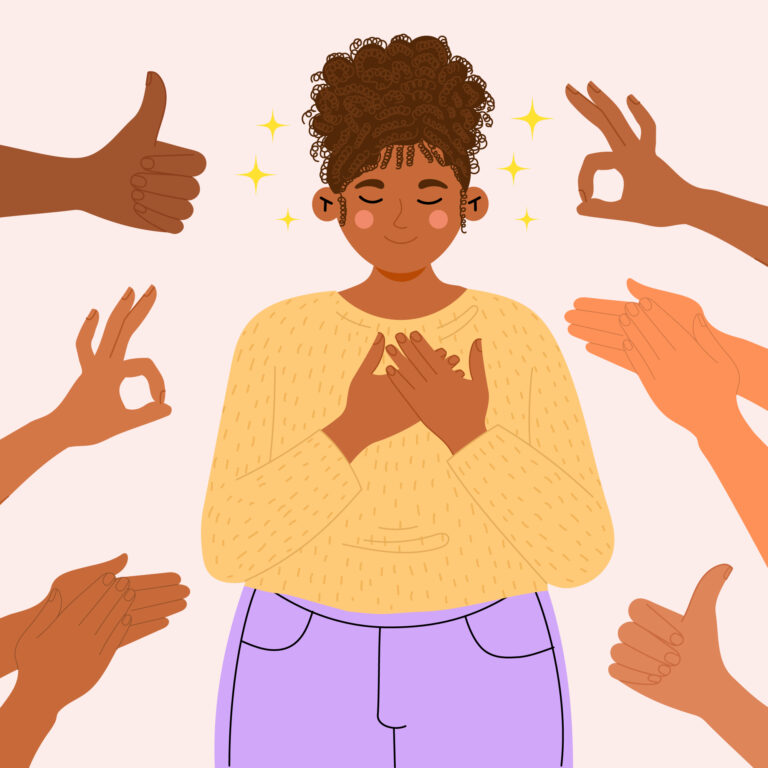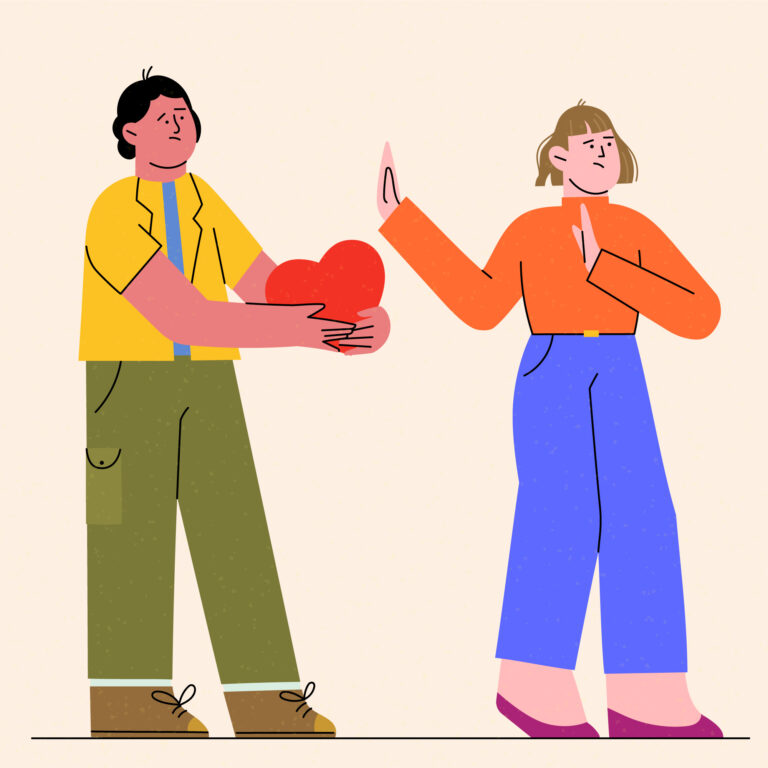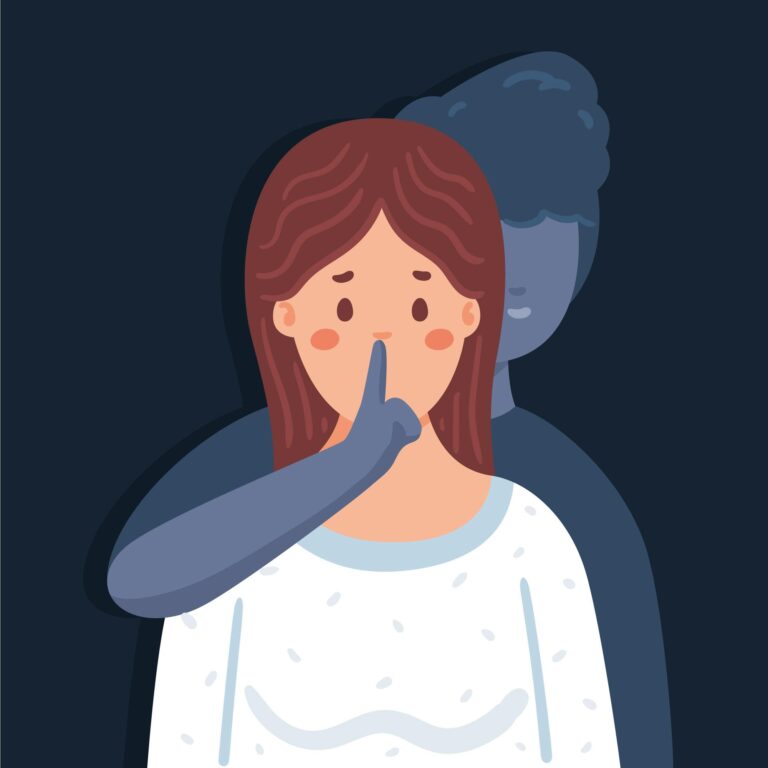How to Maintain Healthy Relationships While Struggling with Anxiety
How do you fight loneliness while struggling with your mental health?
It is really hard to actually maintain relationships while also struggling with anxiety. Or any mental health issue, for that matter. And the guilt that comes with that. If everything drains your energy – even the things that are supposed to give you energy – it can be hard to keep pouring into that cup. Especially when you always feel you’re coming up short. This is how you can make maintaining relationships a little bit easier.
(A little disclaimer: I write from my own experience as a person with anxiety. But this blog can relate to other people with different diagnoses too. I will, however, be speaking mostly about anxiety because that’s what I have experience with).
I saw a Thread (yes, we are on Threads, come find me there!) recently, that said “Social anxiety is so funny, what do you mean I am afraid of my friends?”. And even though ‘afraid of my friends’ sounds pretty dramatic, there is definitely some truth to it. In some way I am actually afraid of being around my friends.
Not because they will hurt me, but because I will be overthinking.
The.
Entire.
Time.
I know my friends don’t hate me. And I know you know that too. But that little voice in our head can’t help but add a tiny “But what if they do?”. Just to shake things up.
But it is not necessarily the feeling of ‘anxious’ when I have to go out and meet my friends that causes me to drop the ball. I can force myself to go out and have a good time. My biggest problem is – surprise, surprise – me. Because when I am exhausted from being afraid of literally everything, I don’t have the mental capacity to call people. Or even to reply to texts.
If you’re like me, you’re probably one of those ‘leave you on read for six months’-type of people. And that messes with your relationships. The number of relationships that have slowly fizzled out because I stopped replying and then, eventually, they did too… Or sometimes it’s not even the not-replying that does it. Sometimes it’s just the fact that you basically have the same conversation over and over again. The ‘how are you’ type of conversations that you just repeat every month when you remember to reach out again. You just don’t connect like you did when you were living close to each other. Or when you still worked together.
Eventually you’re basically just acquaintances who sometimes ask each other how everything is going.
Well no longer. Because in this blog we’re going to learn how to become better at staying in touch. Even if it’s only a little better.
Short summary for quick readers
- Anxiety can also leave you exhausted after every interaction you have, making it less likely you'll want to hang out again any time soon.
- Your anxiety can negatively influence the friendships itself because you keep worrying about everything and 'ruining' trips and adventures with your worries.
- Some friends aren't ready to be in relationships with anxious people. That is okay too. Find some who are. Talk about your anxiety and share the burden. Help them understand you and figure out ways to help you.
- It can help to turn friendship into a habit. Schedule replies and weekly or monthly meetups in your calendar so you can prepare.
- Take the initiative to make the meetup work for your needs: suggest watching a movie at your house or something else low effort.
- Friends still get to have boundaries and they do not have to take on your anxiety themselves. It is still yours to manage. They can't be your therapist or enabler.
- Try and let go of the shame you feel. "If they wanted to, they would" is a bullshit statement. You aren't a 'bad' friend. Your brain just works differently. Real friends will be able to accept that.
* Free wallpaper download * Free wallpaper download * Free wallpaper download
* Free wallpaper download * Free wallpaper download * Free wallpaper download
ANXIOUSLY SOCIAL
The problem isn’t even that we’re social pariahs. Usually we’re actually pretty alright when it comes to social situations. We can handle ourselves in public and people probably even like us.
‘You’re so social!’ That is a phrase people often use to describe me. They see me putting in the work, talking to everybody, cracking jokes. All without actually knowing that it takes me a lot of effort to be this level of social. And that I am only this level of social because I am scared of being seen as boring or, even worse, unlikable. I am the most social person at the party up until the point I get home and have to lie down for a few days. Even if it was just two hours of being out and about.
And that usually also means I’m going to be recovering off the grid. In the first five minutes after being social I might shoot you an occasional text. But after 24 hours there will be radio silence. And the only reason why is because I have to recharge.
But that doesn’t help with maintaining friendships. Like, at all.
So do we just push through, try to make ourselves more social while ignoring everything our mind is screaming at us?
You could be anxiously social, nervously networking your way through life while slowly reaching a burn-out stage of exhaustion. But that isn’t going to help you. And if they’re really your friends, it won’t help them either (cause, you know, good friends wouldn’t want you to slowly die).
ANXIETY AND RELATIONSHIPS
Let’s first talk a little bit about the why. Why is it so hard for us to actually hold on to friends?
Anxiety can affect your relationships in a number of ways. And it all depends on the type of things you worry about. Which is related to the type of anxiety you have.
If you have social anxiety, you might not like being in public places where other people can see and *gasp* perceive you. Or you overthink the conversations and interactions you have with your friends and how they perceive you.
If you have a generalized anxiety disorder (GAD) you might have already been dreading this whole thing the week before. Not because you hate your friends, but because you add up all the small things that will suck about this outing and it turned into a whole stinking pile of crap. You think about the venue, the people that will be there, the train you have to take to get there. Everything will seem like it’s too much to handle. What if anything goes wrong?
And while you’re overthinking, you already missed the time window for when you were supposed to leave to get there on time.
ANXIETY IN RELATIONSHIPS
Now you feel anxious about the fact that you are late. And how will your friends react to that? What are you going to tell them when they ask why you were late? Are you really going to tell them you were afraid? The little voice in your head is working up a storm trying to think of everything that could go wrong and that possibly could be a potentially threatening situation.
And if you’re too scared of hanging out, you’re also not going to be the one to initiate that next hang. The group chat is chatting and you’re just on your bed hoping they’re going to wait a little while before they pick a new date.
Not to mention the mental exhaustion when you do actually manage to go out… But anxiety can also manifest on the outside; when you’re overly concerned about your friends, the trip you’re taking or the restaurant you’re at. If you’re always the buzzkill, thinking about everything that could go wrong – and ‘should we really be doing this?’… Then your friends might eventually get tired of your anxious mind.
Anxiety influences relationships in a number of ways. And none of them are great. For some people, their anxiety completely isolates them from relationships altogether.
DEAL WITH ANXIETY WHILE KEEPING RELATIONSHIPS
It is important to remember: some people can not deal with other people’s mental health issues. They’re either not emotionally mature enough to understand, or they’re dealing with their own mental hardships and can’t take yours on next to that. Don’t take it personally when people don’t feel like they are able to deal with your anxiety.
It is not about you.
Your friendship isn’t ruined because of your issues. You’re both individuals with your own strengths, challenges and set of tools to deal with said challenges. Some people just won’t be right for you. And it’s easier to put that friendship on the back burner and connect with people who can help you.
The friends that are right for you will help you by filling up the little cracks that you sometimes, unwillingly, show.
1. SHARE THE BURDEN OF ANXIETY
The best way to deal with anxiety in friendships is to talk about it. I’m going to assume your friends know that you have anxiety. But do they know what that means and what it looks like? Talk them through it. Try to help them understand why it’s so hard for you to text, and why you’re never the person to initiate a date. By talking through your issues and helping them understand what goes on in your brain, you might create more empathy and compassion. If you’re struggling with effective communication, then I have a blog on that subject right here.
Recommend a book they could read to understand you better and give them clear pointers on the things that might help you stay in touch. You know yourself best and that means you probably already know why you keep “messing up”. Try to figure out ways together in which you can actually be better, or be helped.
Opening up about your issues and sharing them with friends is a great way to become more authentic in who you are, while acknowledging that your anxiety doesn’t make you a person unworthy of connection. Because it is so easy to blame yourself for your inability to keep the conversation going.
2. MAKE FRIENDSHIPS A HABIT
In this blog, I talk about all the ways you can include new habits into your day to day life to actually get more done. Maintaining friendships is a habit that we just have a really hard time sticking to. That is because friendships aren’t completely under our control: people don’t want to hang out only when we want them to and they don’t just reach out whenever you want them to. Part of the struggle can be solved by actually making it easier to stick to it; lower the threshold just so you don’t give up after two days.
For me, it was mostly about the fact that my friends kept responding right after I responded to them. Right when I finally replied to them – after three weeks of nothing – they would immediately jump at the opportunity and text me back right away. Then I felt the need to respond again and before I knew it, I was mentally drained, only to ignore them again for the next few weeks.
So instead of responding whenever they wanted me to, I decided to only respond when I wanted to: make it into a scheduled item in my calendar. Everyday during lunch, I would respond to all the messages that were still open. Once that was done, I would close my messaging apps and only open them in case of an emergency. Responding became a habit and I was sticking to it every day.
Another obstacle for me, was the fact that I had to respond on my phone. I hate being on my phone a lot. It gives me a headache, it hurts my hands, my neck and my back. So I want to keep screen time to a minimum (which works great for someone who has to be chronically online to promote her blog and stuff…). To solve this problem, I actually send messages from my laptop. iMessage, Whatsapp; a lot of the messaging apps can be accessed through your desktop or laptop. And that means no neck- or backpain. It made responding into a more pleasurable experience overall.
Now my friends know that I don’t respond as much but they still regularly hear from me; a perfect example of give and take.
3. MANAGE THE DATE
If you have a hard time managing your anxiety outdoors, try to find middle ground with your friends. Keep it simple: invite them to your place and cook dinner together or have a movie night with snacks they brought. And you can switch it up by meeting in a different house everytime.
When it’s more about group size, you can make sure that you only see one or two of your friends at the time. That way, you won’t have to worry about feeling left out.
There are plenty of ways to manage the dates you have with your friends and to make sure you feel comfortable. If you don’t mind going to the movies with your friends or to hang out in a bar, then do that. And you can tell your friends that you really want them to stay with you and not run off with other random people, leaving you alone, exposed to the possibility of *gasp* small talk.
YOUR ANXIETY ISN’T THEIRS
A good thing to keep in mind, though, is that your anxiety is still yours. They can share the burden and do a lot to make you feel more comfortable. But there is a difference between stating your boundaries and expecting others to change theirs.
If you only want to meet up with one friend at a time, and they still hang out together without you, then that is their prerogative. If you keep demanding that everyone comes to your house and people want a break from that, you’re not the one who gets to throw a fit.
Relationships, I think, are very important when it comes to anxiety. Especially when those friends want to go above and beyond to help you. Because it can feel really lonely at times; feeling like everything is a struggle and nothing ‘just happens’. And when you’ve found your people, it can sometimes become easy to heavily rely on them.
Just because they’re safe. And they want to help you.
Still, you have to stay aware of the fact that you can’t become dependent on them. They’re not your therapist and they can’t become your enabler.
That is why it is still very important to make sure you still see a health care professional to help you actively deal with your anxious feelings. Just so you can slowly, with the help of your friends and your therapist, improve.
ANXIOUS ABOUT ANXIOUS RELATIONSHIPS
It isn’t easy to maintain relationships when you’re struggling with anxiety or other mental health issues. Even though we really want to, we gradually lose touch with people that meant a lot to us. And when that happens we feel guilty and never reach out again. Just because we feel so ashamed.
Sayings like ‘If they wanted to, they would’, definitely don’t help with this. Because it makes it seem like ‘wanting to’ is something easy. As if the internal feeling of ‘want’ can’t be stunted by a crippling feeling of ‘can’t’. But people tend to think that motivation only works one way: you want something and you do it. And because of that idea, losing touch because you didn’t reply for four months, can make you feel like you are to blame. Like you are lazy and a bad friend. Like you just didn’t ‘want’ it enough.
But ‘wanting to’ is never actually enough to motivate someone to do something. If it was, we wouldn’t be spending hours watching Netflix while thinking to ourselves: this is going to be the last episode I watch.
So try and let go of that shame. And if you really want to rekindle an old friendship; reach out to them. Explain the situation and see how they react. If they reward your vulnerability with ice cold rejection, you already know that friendship isn’t worth salvaging.
Focus on the friends who do know what you’re going through. And who will help you feel less anxious. Cause a secure friendship can make anxiety actually bearable to deal with. No more anxious relationships for you.
Or well, less, at least.


